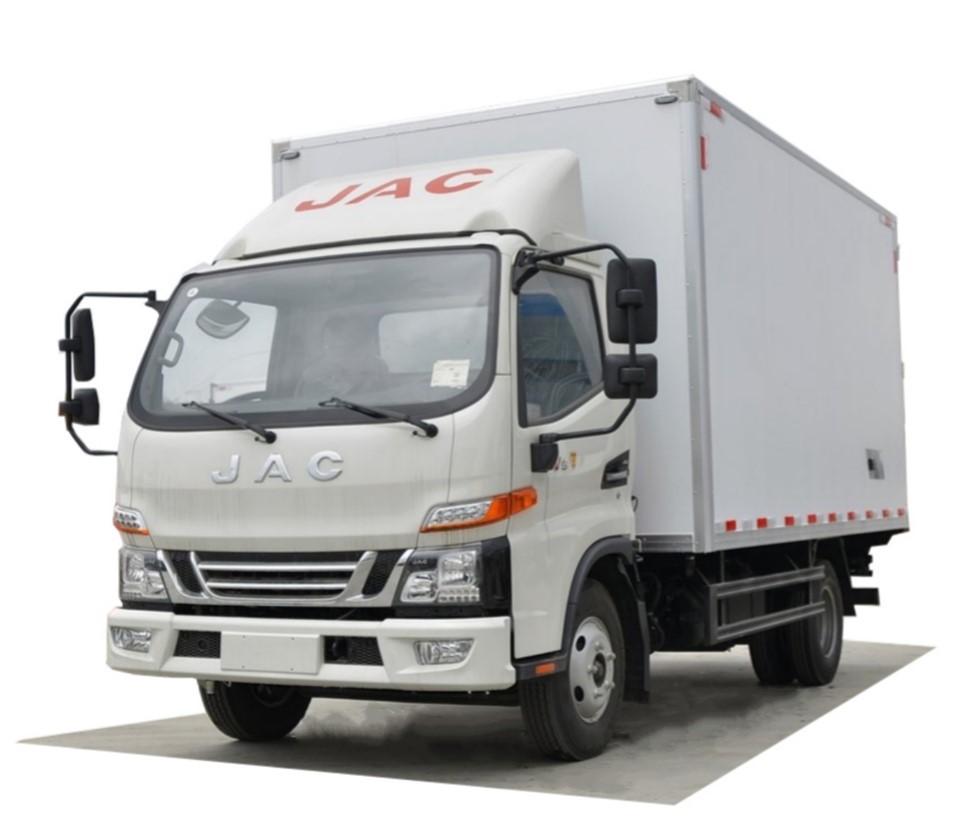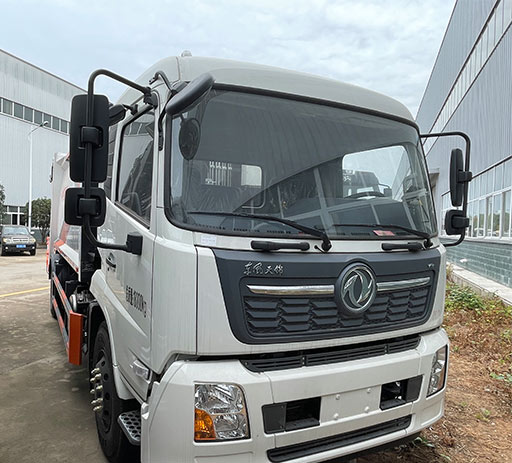Everything You Need to Know About Diesel Fuel Trucks

Introduction
Diesel fuel trucks are an essential component of modern transportation and logistics. Their power, efficiency, and durability make them a popular choice for many industries, including construction, agriculture, and freight shipping. In this comprehensive guide, we will delve into the intricacies of diesel fuel trucks, helping you understand their advantages, maintenance needs, and how to choose the right one for your needs.
What is a Diesel Fuel Truck?
A diesel fuel truck is a vehicle specifically designed to transport diesel fuel. These trucks are built to carry large amounts of fuel over long distances while ensuring safety and efficiency. Diesel engines, known for their superior torque and fuel economy, power these trucks, making them suitable for heavy-duty applications.
Types of Diesel Fuel Trucks
Diesel fuel trucks come in various types, each tailored for specific uses. Here are the main types:
- Tank Trucks: These are the most common diesel fuel trucks, equipped with a storage tank for carrying fuel to various locations.
- Fuel Delivery Trucks: Designed for delivering fuel to businesses and homes, these trucks often have pumps and meters for precise dispensing.
- Bulk Fuel Trucks: These trucks carry large volumes of diesel fuel for wholesale distribution, often ensuring compliance with stringent regulations.
The Advantages of Diesel Fuel Trucks
Diesel fuel trucks offer numerous advantages compared to their gasoline counterparts. Here are some key benefits:

1. Fuel Efficiency
Diesel engines typically deliver better fuel economy than gasoline engines. They can travel longer distances on a gallon of fuel, reducing overall fuel costs significantly.
2. Torque and Power
Diesel engines produce more torque than gasoline engines. This characteristic makes diesel fuel trucks better suited for towing and carrying heavy loads, making them ideal for construction and industrial applications.

3. Durability and Longevity
Diesel engines are built to withstand robust use, which translates to a longer lifespan. This durability makes diesel fuel trucks a more economical option in the long run.
4. Lower CO2 Emissions
While diesel engines may produce higher nitrogen oxide and particulate matter emissions, they generally emit less carbon dioxide compared to gasoline engines. This attribute can be an advantage in terms of environmental compliance.
Components of a Diesel Fuel Truck
A diesel fuel truck consists of several critical components that work together to ensure efficient operation. Let’s explore these elements:
1. Diesel Engine
The engine is the powerhouse of the truck, providing the necessary propulsion whether empty or loaded.
2. Fuel Tank
The primary storage component, typically made of aluminum or steel, designed to safely hold diesel fuel while preventing leaks.
3. Delivery System
This includes pumps and hoses that facilitate the safe transfer of fuel from the tank into other containers or dispensers.
4. Safety Features
Modern diesel fuel trucks come equipped with safety features, including emergency shut-off valves, leak detection systems, and rollover protection to minimize accidents.
Choosing the Right Diesel Fuel Truck
When selecting a diesel fuel truck, consider several factors to ensure it meets your needs effectively.
1. Intended Use
Identify how you plan to use the truck. Will it be for commercial deliveries, personal use, or construction? Different uses might require different specifications.
2. Size and Capacity

Consider both the size of the truck and the capacity of the fuel tank. Ensure it aligns with the volume of fuel you need to transport.
3. Regulatory Compliance
Diesel fuel trucks must comply with local and federal regulations regarding the transport of hazardous materials. Research necessary compliance standards that apply to your area.
4. Maintenance and Support
Evaluate the availability of maintenance services and spare parts. A truck that is easy to service can save you time and money in the long run.
Maintenance Tips for Diesel Fuel Trucks
Proper maintenance is crucial for keeping your diesel fuel truck in excellent condition. Here are some practical tips:
1. Regular Inspections
Conduct pre-trip inspections to check fluid levels, tire pressure, and the overall condition of the truck.
2. Change Oil Regularly
Follow the manufacturer’s recommendations for oil changes. Clean oil is vital for the longevity of the engine.
3. Keep Fuel System Clean
Regularly check and replace fuel filters to prevent dirt and sediment from clogging the fuel system.
4. Inspect the Brake System
Ensure that the brake system is checked and serviced regularly for safety, especially if you are hauling heavy loads.
Safety Considerations for Diesel Fuel Trucks
Safety is paramount when operating diesel fuel trucks. Consider the following tips:
1. Training and Certification
Drivers should undergo proper training and certification regarding the handling and transportation of hazardous materials.
2. Use Personal Protective Equipment
Ensure all personnel involved wear appropriate personal protective equipment (PPE) to mitigate exposure risks.
3. Spill Response Plans
Have a plan in place for dealing with fuel spills, including the necessary equipment and training for staff.
Cost Analysis of Diesel Fuel Trucks
Understanding the costs associated with diesel fuel trucks is critical for budget planning.
1. Purchase Costs
The initial purchase price differs based on the size, manufacturer, and features. Consider comparing several options before making a decision.
2. Operational Costs
Operational costs include fuel, maintenance, insurance, and repairs. Track these costs to evaluate your overall expenditure.
Sample Cost Breakdown Table
| Cost Category | Annual Cost Estimate ($) |
|---|---|
| Fuel | 10,000 |
| Maintenance | 2,500 |
| Insurance | 1,200 |
| Repairs | 1,500 |
| Total | 15,200 |
Future Trends in Diesel Fuel Trucks
As technology evolves, so do diesel fuel trucks. Here are some future trends to watch:
1. Emissions Reduction Technology
New technologies, such as selective catalytic reduction (SCR) and particulate filters, are being implemented to reduce harmful emissions from diesel engines.
2. Alternative Fuels
Although diesel remains a popular choice, biofuels and synthetic fuels are emerging as alternatives that can provide environmental benefits.
3. Enhanced Safety Features
Advancements in technology are leading to improved safety features, including automatic braking systems, collision avoidance technology, and enhanced stability control.
FAQ Section
1. What are the benefits of using diesel over gasoline for trucks?
Diesel trucks generally offer better fuel economy, more torque for hauling capacity, and increased engine durability, which can lead to lower long-term costs.
2. How often should I perform maintenance on my diesel fuel truck?
Regular maintenance should be performed based on manufacturers’ recommendations, typically including oil changes every 5,000 to 10,000 miles, alongside routine inspections.
3. Are diesel fuel trucks more expensive to insure than gasoline trucks?
Insurance costs can vary based on numerous factors such as the value of the truck, usage, and local regulations. However, diesel trucks might incur higher premiums due to their extensive applications and cargo.
4. What should I do in case of a fuel spill?
Immediately follow your company’s spill response plan, which should include containing the spill, notifying authorities if necessary, and using spill cleanup kits as required.
5. Can diesel fuel trucks run on bio-diesel?
Yes, many modern diesel fuel trucks are compatible with biodiesel. However, it is crucial to check with the vehicle manufacturer regarding compatibility and specific blending ratios.
6. What is the average lifespan of a diesel fuel truck?
With proper maintenance, a diesel fuel truck can last from 10 to 15 years or even longer, depending on usage and care taken throughout its lifetime.
